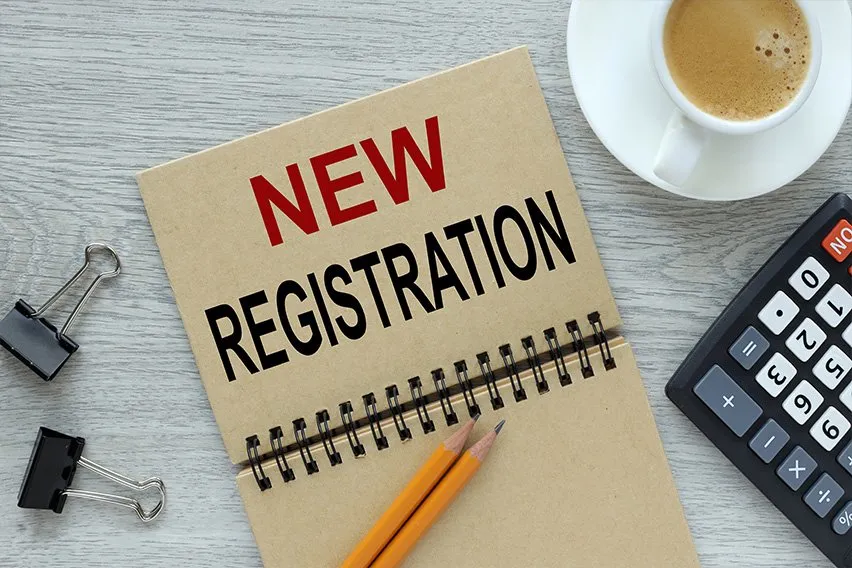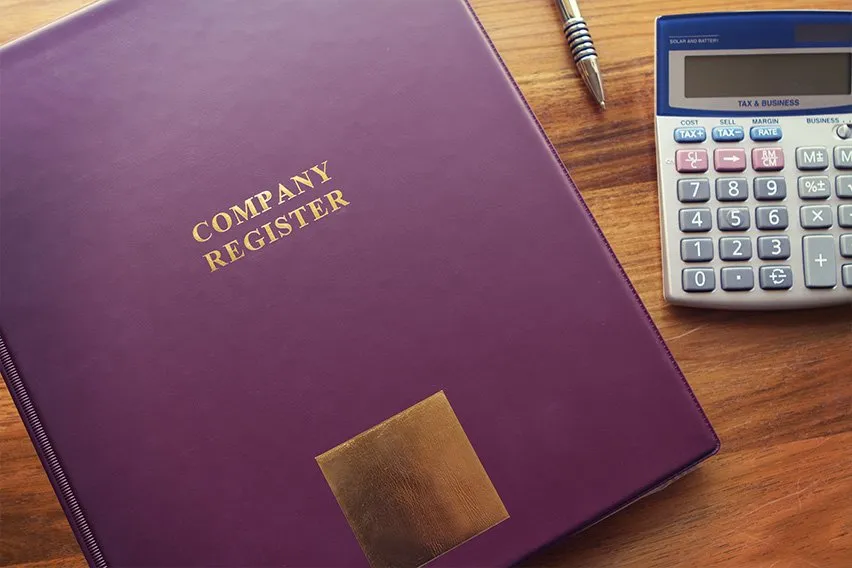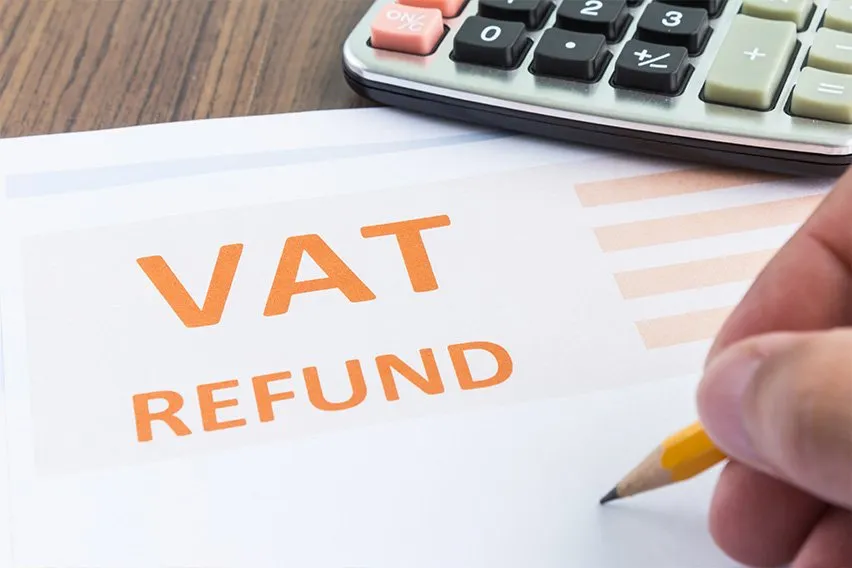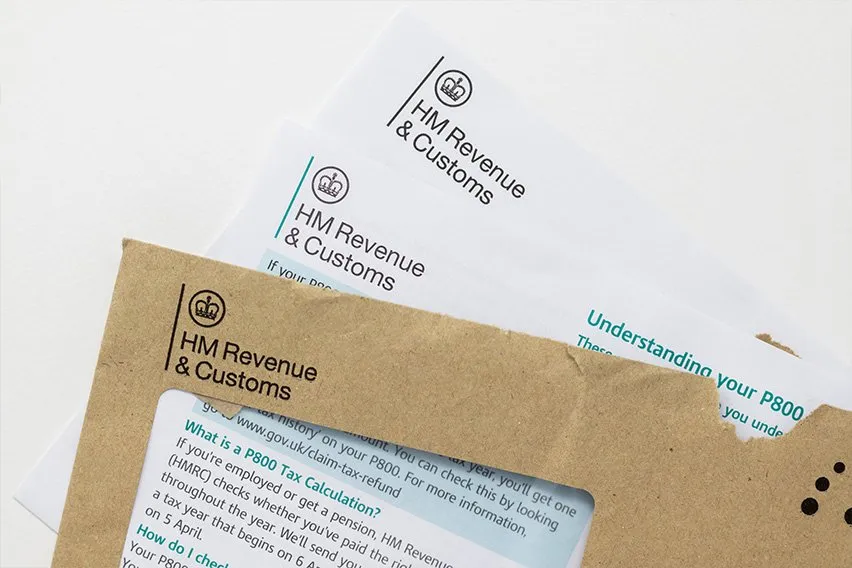How to Register a Business Name in the UK

How exciting! You’ve decided to register your business! This is a big step to take and we’ve got all the details you need about choosing your business name. Registering a company in the UK begins with one question: What’s it called? Choosing a title for your company isn’t quite as straightforward as you might first imagine.
Here’s What We’ll Cover:
If I Register With Companies House, Does That Mean I’m Trademarked?
Do I Need to Register a Trading Name in the UK?
How Do I Set up a Business Name in the UK?
How Much Does It Cost to Register My Business Name in the UK?
Choosing Your Company Name
It’s very important to get this right before you start the registration process. Because, if it breaks one of the regulations, your whole submission will be rejected and you’ll have to start at the beginning again.
You need to make sure that your company name isn’t taken by a different business and isn’t already trademarked by someone else.
Companies House has a free, simple tool called the Company Name Availability Checker. You just type in your proposed company title and the tool will tell you if there are any problems.

What Problems Might There Be With My Suggested Name?
There are a few, easily avoidable hitches to your choice of company name.
‘Same As’ Names
The government name check tool may tell you that your suggested company name is the ‘same as’ another existing company. This doesn’t just mean another limited company with exactly the same name. It also means those with only slight points of difference, such as:
- Using special characteristics, like a ‘+’ instead of ‘and’
- Particular punctuation
- A word or character commonly found in UK company names
- A character or word that looks like, or has similar meaning to, an existing name that’s already registered
You’ll only be allowed to use a ‘same as’ name if the limited company, or limited liability partnership (LLP), has given you written permission. The only other circumstance where your company name can be in the ‘same as’ category is if your business is part of that company or LLP.
‘Too Like’ Names
Names that are ‘too like’ other registered companies won’t be allowed.
HMRC’s example is: ‘Easy Electrics For You Ltd’ and ‘EZ Electrix 4U Ltd.’ These would be considered ‘too like.’
If someone complained about your name being ‘too like’ theirs, and Companies House upheld their opinion, you’d have to change it.
Offensive Language
You will not be allowed to register a name with Companies House if it contains offensive language. Using swear words, religious profanities, or discriminatory language is an unlikely choice for most business owners.
But some people almost step over the boundaries by trying to have a funny company name. Humour is a broad spectrum. For example, Laurel and Hardy, and Family Guy are both funny—in very different ways. Consider your customers: Will they all get the joke?
A satisfying pun, or cheeky play on words might be a great idea to make you stand out from your competition. But if your potential business name is bordering on the cusp of ‘adult humour,’ the chances are that Companies House won’t allow it.
‘Sensitive’ Words
There are some words and phrases that you need permission to use. Government departments call them “sensitive words and expressions.” There is a published list called ‘The Company, Limited Liability Partnership and Business Names (Sensitive Words and Expressions) Regulations 2014.’ This lists all the restricted words and expressions, and the bodies you need to apply to for permission to use them in your business.
For example, you must get permission from the Financial Conduct Authority to use the words ‘insurer’ or ‘insurance’ in your company name.
The legislation even specifies that this includes the “plural, possessive and (where relevant) feminine forms” of the words, as well as the Welsh or Gaelic equivalents.
One part of the regulations applies to the whole of the UK. Whichever of the four UK nations you live in, you apply to that listed professional organisation. But there are some words and phrases that have different organisations, depending on where you live in the UK.
For example, let’s say you want to include one of these words in your company name: Duke, His Majesty, King, Prince, Queen, Royal, Royalty, Windsor.
- In England, you apply to the Ministry of Justice for permission
- In Scotland, the Scottish Government
- In Wales, the Welsh Assembly Government
- In Northern Ireland, the Ministry of Justice
There aren’t many words or phrases in this list, and it’s very clear.
Other Regulated Words and Expressions
There are some other regulated words and expressions that require written permission attached to your company registration. They don’t fit into the list of government departments or local authorities, but are still governed by professional bodies.
For example the words Olympic, Olympian, Olympiad, Paralympic, Paralympian and Paralympiad all require authorisation from the British Olympic Association. Without written consent, your company name will be rejected by Companies House if it contains these words.
If I Register With Companies House, Does That Mean I’m Trademarked?
This is a very common misunderstanding. Just because you register with Companies House doesn’t mean your business name is trademarked. They are two different official government departments and they administer different things for different reasons.
Companies House maintains the list of all UK limited companies. Registering your business means that they won’t allow anyone else to use a same or similar name. The Intellectual Property Office approves and registers trademarks which usually apply to your products or services. Having one doesn’t mean you automatically have the other. And you can have both at the same time. They have separate application procedures and governing regulations.
Do I Need to Register a Trading Name in the UK?
You can have a registered company name and a ‘business name’ that you trade under. A separate trading name is subject to the same rules around restricted words, offensive language and already trademarked names.
A ‘business name’ is not allowed to include any of the following terms or their acronyms: Limited (Ltd), LLP or public limited company (plc).
Why It’s Important to Get Your Name Right When You Register Your Business
Be Legal
These vocabulary requirements from Companies House aren’t suggestions, they’re legislation. You need to get the correct ‘non-objection’ declaration from the correct source. Otherwise, you’re committing a criminal offence.
Save Yourself Money and Hassle
Imagine what a hassle it’ll be to have to change your business name after you register your company. Not only will you have to change all your official documentation, but everything carrying your company name will have to be redone. That’s going to cost you.
When you ‘re registering a company, you need to work through all the details at the start.

How Do I Set up a Business Name in the UK?
There are a few simple steps to take when you first register your business name in the UK:
- Check company name: Follow all the relevant rules referenced above
- Figure out your business structure: Limited company, sole trader, or partnership
- Gather all the information you need to register before you start the registration process
Let’s have a look at the different business structures and their particular rules around business names.
Limited Company
If you’re registering with Companies House, you’re running a limited company. Your company name must have the suffix ‘Ltd’ or end with the word ‘Limited.’ If it’s a Welsh registered company, you can use the Welsh ‘Cyfyngedig’ or ‘Cyf.’ Using the online registration process means that you can register to pay your corporation tax with HM Revenue and Customs (HMRC) at the same time.
Sole Trader
As a sole trader, you don’t need to register with Companies House. You do have to register your business with HMRC, so it knows you’ll be using the self-assessment system to pay tax. When it comes to naming your business, you have to follow the same rules around sensitive and offensive language.
You cannot choose the same name as an existing trademark. The onus is on you to check. A sole trader isn’t allowed to use ‘limited’, ‘Ltd’, ‘limited liability partnership’, ‘LLP’, ‘public limited company’ or ‘plc’ in their business names. They all imply a legal business structure you don’t have.
A sole trader must put their name and business name on all business correspondence.
Partnership
A business partnership is also bound by the same language and trademark rules. Your application must include a ‘nominated partner’ that is responsible for sending tax returns.
Registering a company involves more than just the name. Limited companies have a more complicated process—the name registration is just part of it.
Within the whole process you’ll also need to:
- Register for corporation tax
- Include a UK company address, which will be public
- Have accurate information for the directors, company secretary and shareholders
- Attach a memorandum and articles of association
- Enter a standard industrial classification (SIC) code
These are all explained in our ‘How to set up a limited company’ guide.
There’s a lot to think about! And it’s wise to do all this thinking and organising before you even open the online application form.
How Much Does It Cost to Register My Business Name in the UK?
There are different costs, depending on how you register. Most business owners use the online registration process. It costs £12 to register with Companies House online and applications are usually process within 24 hours.
If you need to apply by post, this takes 8-10 days and costs £40.
Same day registrations are possible, but they cost £100 and will only go through on the same day if you’ve completed your online registration by 3pm. It’s worth asking yourself if you really need an immediate response, and save the extra cost.
You can pay this fee by PayPal, or credit or debit card.
If you decide to use a company formation agent to complete the process for you, you’ll also have to account for their fee separately.
RELATED ARTICLES

 UK Small Business Grants: What are They and How Do I Apply?
UK Small Business Grants: What are They and How Do I Apply? How Do I Register a Limited Company in the UK?
How Do I Register a Limited Company in the UK? Can I Get a VAT Refund When I Leave the UK? Can I Get VAT Refund When I Leave UK Soil?
Can I Get a VAT Refund When I Leave the UK? Can I Get VAT Refund When I Leave UK Soil? HMRC Invoice Requirements
HMRC Invoice Requirements